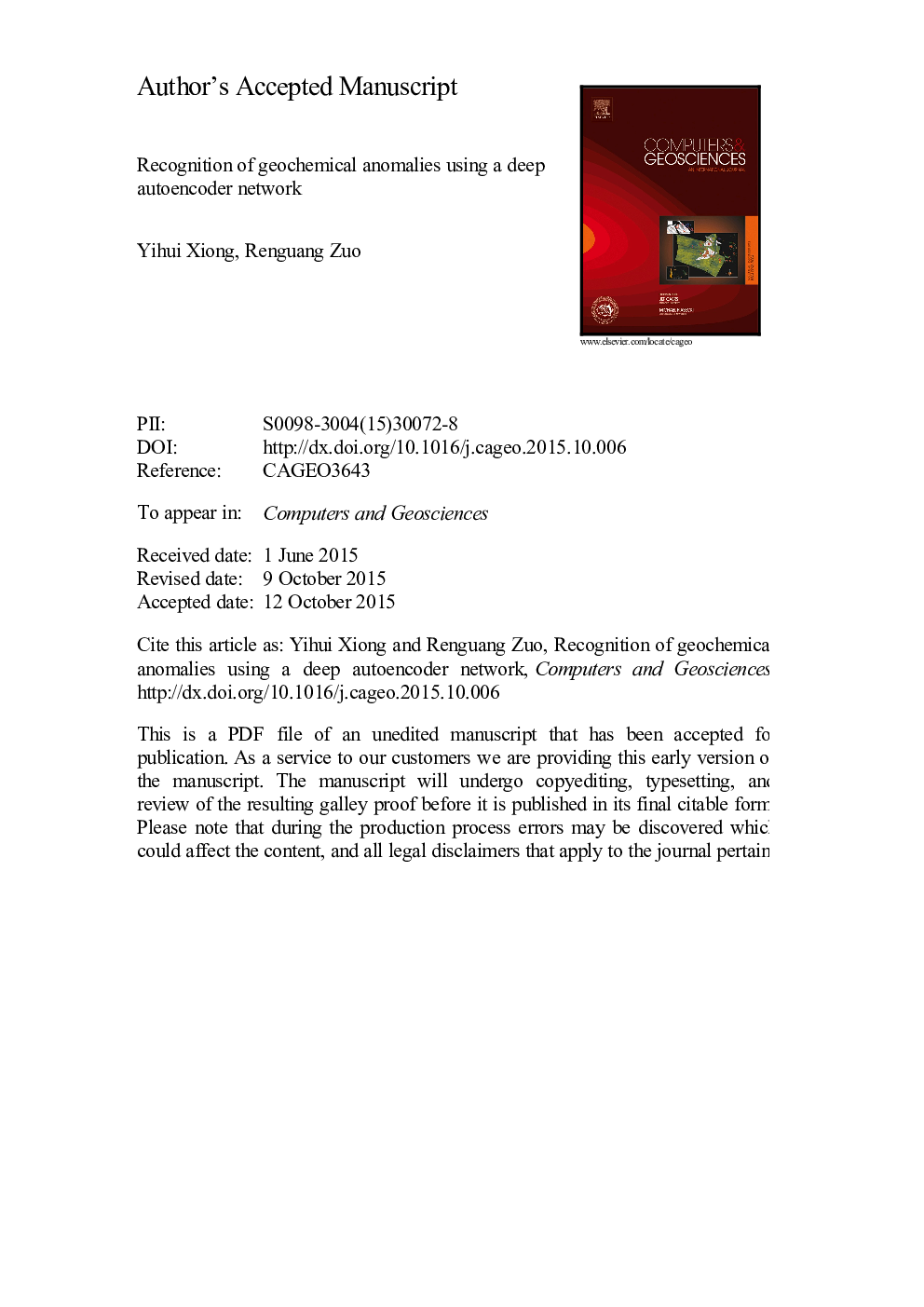| Article ID | Journal | Published Year | Pages | File Type |
|---|---|---|---|---|
| 6922470 | Computers & Geosciences | 2016 | 36 Pages |
Abstract
In this paper, we train an autoencoder network to encode and reconstruct a geochemical sample population with unknown complex multivariate probability distributions. During the training, small probability samples contribute little to the autoencoder network. These samples can be recognized by the trained model as anomalous samples due to their comparatively higher reconstructed errors. The southwestern Fujian district (China) is chosen as a case study area. A variety of learning rates, iterations, and the size of each hidden layer are constructing and training the deep autoencoder networks on all the geochemical samples. The reconstruction error (or, anomaly score) of each training sample is used to recognize multivariate geochemical anomalies associated with Fe polymetallic mineralization. By comparing the results obtained with a continuous restricted Boltzmann machine, we conclude that the autoencoder network can be trained to recognize multivariate geochemical anomalies. Most of the known skarn-type Fe deposits are located in areas with high reconstruction errors or anomaly scores in the anomaly map, indicating that these anomalies may be related to Fe mineralization.
Keywords
Related Topics
Physical Sciences and Engineering
Computer Science
Computer Science Applications
Authors
Yihui Xiong, Renguang Zuo,
